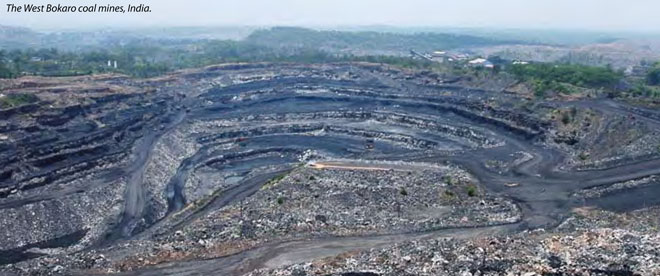Facilitating policies for the future as a responsible corporate citizen
Tata Steel participates in stakeholder consultations with Committees and Ministries both through industry associations and directly, when invited to do so by the relevant planning and policy-making bodies. It joined Ministerial level sub-committees constituted to discuss and develop India's 12th Five Year Plan (2012-17), including three formed by the Ministry of Steel on the demand and supply of iron and steel, raw material and infrastructure issues in iron and steel and R&D and Technology. The Company was a member of the Working Group on Mineral Exploration and Development (Other than Coal and Lignite) under the Ministry of Mines, leading to its participation in three sub-groups created by the Ministry. It was also invited to join the Working Group on Coal and Lignite, constituted by the Ministry of Coal, and the Working Group on the Railway Sector by the Ministry of Railways.
Suggestions proposed by the committees were accepted and recommended by the Ministries to the Planning Commission, based on their potential to accelerate growth in the country and remove constraints to growth besides addressing challenges faced by the steel sector.
The Planning Commission constituted two committees in Financial Year 2011-12, one each for Land and Water. Vice Chairman, Tata Steel, was nominated by the Planning Commission as Chairman of the Working Group on Land and Water. Inputs were obtained from stakeholders in the public and private sectors and industry associations. A report covering the current status, availability of resources, future demand till 2050 and recommendations for allocation and acquisition has been submitted to the Planning Commission.
During Financial Year 2011-12, the Company provided inputs for the new Mines and Minerals Development and Regulation (MMDR) Act and Land Acquisition, Rehabilitation and Resettlement (LARR) Act through presentations to members of the Standing Committee of Parliament, concerned Ministries and the Planning Commission.
It also participated in a review of India's Coal Disposal Policy and Coal Allocation Policy, providing inputs on proposed revisions to the policies. An active participant in the formulation of the New Steel Policy (up to 2050), Tata Steel is represented in task forces formed by the Steel Ministry, namely Raw Material and Infrastructure, R&D, Technology, Environment, Manpower and Steel Demand Forecast.
In an education-related intervention, Tata Steel together with a leading university advised the Indian Government to change its policy with respect to allowing medical colleges to be opened in cities even if the distance between the teaching hospital and the College was more than five kms. The rule has since been changed and it has paved the way for a medical college to be set up in Jamshedpur, in collaboration with TSL and its affiliates. The policy will help more medical colleges open in the country with the aim of training medical and paramedical staff to cater to its growing population.

The West Bokaro coal mines, India.
|